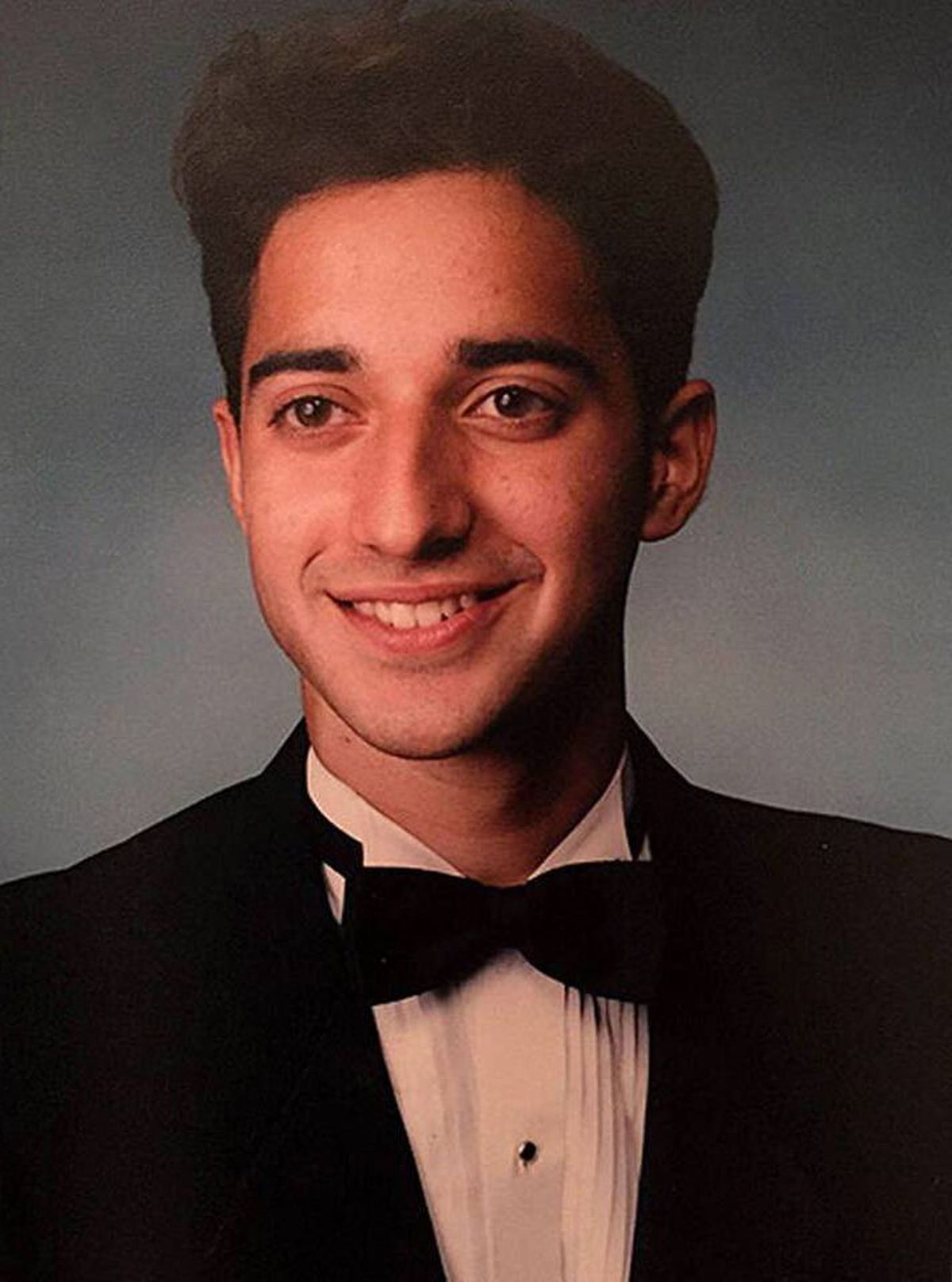Adnan Syed, featured in ‘Serial’ podcast, will be released from prison

Adnan Syed, whose murder case captivated the nation after it was featured on the true-crime podcast “Serial,” was freed from prison Monday after 23 years, his conviction vacated – at least for now – by a judge who found deficiencies in how prosecutors had turned over evidence to defense attorneys decades ago.
Acting on a request from Baltimore City State’s Attorney Marilyn Mosby, Circuit Judge Melissa Phinn ordered Syed unshackled in the courtroom and sent home while he waits to find out whether prosecutors will seek a new trial or drop their pursuit of him.
Now 42 years old, Syed emerged from the courthouse to a roaring crowd. Dressed in white with a blue tie, he smiled and waved before he was ushered into a car and driven away.
But his continued freedom is not guaranteed.
Phinn said prosecutors have 30 days to decide whether they will retry Syed in the killing of his ex-girlfriend, 18-year-old Hae Min Lee. Mosby, the state’s attorney for Baltimore City, said after the Monday decision that her office had not yet declared him innocent but that he was entitled to a new trial “in the interest of fairness and justice.”
Maryland Attorney General Brian E. Frosh (D) – whose office previously has defended the handling of Syed’s case in court proceedings – blasted the Baltimore prosecutor for acting without consulting his office, and he called the allegations that prosecutors did not hand over evidence to Syed’s defense as they should have “incorrect.”
“Neither State’s Attorney Mosby nor anyone from her office bothered to consult with either the assistant state’s Attorney who prosecuted the case or with anyone in my office regarding these alleged violations,” Frosh said. “The file in this case was made available on several occasions to the defense.”
While he awaits prosecutors’ next move, Syed will be under GPS supervision, Phinn said.
Syed has maintained his innocence since he was arrested for Lee’s murder in February 1999, when he was a 17-year-old in high school. Investigators at the time determined she died by strangulation, and Syed was convicted of murder in 2000 and sentenced to life behind bars. He had long sought to overturn his conviction and get a new trial, but until recently, he had faced opposition from prosecutors.
Syed’s case was featured on “Serial,” which had its first season in 2014. Host Sarah Koenig detailed the events surrounding the death of Lee, raising questions about the handling of the investigation, the conduct of Syed’s defense and whether Syed might have been innocent.
Over a decade after his conviction, Syed started to see some hope that he would get new legal proceedings.
In 2016, a circuit court vacated Syed’s conviction, citing the “ineffective assistance” of a former attorney who failed to investigate an alibi witness, and in March 2018, the Court of Special Appeals upheld the ruling granting Syed a new trial. But in March 2019, Maryland’s highest court reinstated Syed’s murder conviction.
Then on Wednesday, the Baltimore City state’s attorney office said in a motion in circuit court that it wanted the conviction tossed and Syed released. The office said its nearly yearlong investigation into the case, which was conducted with Syed’s defense, had found new evidence of potential suspects, as well as materials that should have been handed over to defense attorneys that were not.
The move drew widespread praise from supporters of Syed, who have long waged a public and legal campaign for his freedom.
C. Justin Brown, a former attorney for Syed who began representing him in 2009, released a statement that celebrated the ruling but expressed concern at how long it took to arrive at this decision.
“It has now been revealed that prosecutors were aware of another viable suspect in Hae Min Lee’s murder, but that they sat on that information for more than 20 years,” Brown’s statement said. “While we do not know how this happened, nor whether it was intentional, we do know it is inexcusable.”
But that feeling was not universal.
Young Lee, Hae Min Lee’s brother, said at the hearing Monday that prosecutors’ motion to vacate the conviction left him feeling “betrayed.”
“That’s really tough for me to swallow, and especially for my mom,” he said.
A critical piece of the 2014 the podcast was an alibi provided by Asia McClain Chapman, a Spokane resident. She later testified for the defense in a bid to get Syed a new trial.
After the podcast came out, she wrote a book about her experience, “Confessions of a ‘Serial’ Alibi” and appeared in the HBO documentary “The Case Against Adnan Syed.”
McClain Chapman, who declined to speak with The Spokesman -Review on Monday, shared a video of her dancing on TikTok, and shared on Twitter her anxiety over the hearing .
“I can barely even read tweets cause I’m crying so hard right now,” she said.
Then, “Come on…. say it!” she tweeted ahead of the judge’s ruling.
After the judge overturned Syed’s conviction came a slew of victorious tweets including “#FREEADNAN.”